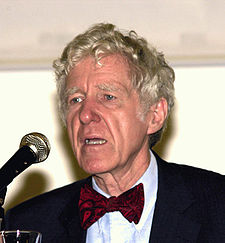 In a hard-hitting article in today’s New Zealand Medical Journal, a group of senior health professionals call for NZ to halve its greenhouse gas emissions by 2020. The spokesperson for the recently formed Climate and Health Group, Dr Alex Macmillan says:
In a hard-hitting article in today’s New Zealand Medical Journal, a group of senior health professionals call for NZ to halve its greenhouse gas emissions by 2020. The spokesperson for the recently formed Climate and Health Group, Dr Alex Macmillan says:
Climate change has been described as the biggest global health threat of the 21st century, and the substantial health benefits of action should be fully included in decision-making, as should the harms of inaction.
According to the paper, the health benefits of action to reduce emissions include:
Continue reading “Doctors orders: NZ “must rapidly halve its greenhouse emissions””

 New Zealand’s commitment to piffling and highly conditional emissions targets appears to have been weakened even further by chief negotiator Adrian Macey’s admission in an interview with Point Carbon that if the conditions aren’t met:
New Zealand’s commitment to piffling and highly conditional emissions targets appears to have been weakened even further by chief negotiator Adrian Macey’s admission in an interview with Point Carbon that if the conditions aren’t met: This is a guest blog from Oxfam NZ’s executive director Barry Coates, in Bangkok for the latest round of negotiations in the run-up to Copenhagen. Barry sets the scene:
This is a guest blog from Oxfam NZ’s executive director Barry Coates, in Bangkok for the latest round of negotiations in the run-up to Copenhagen. Barry sets the scene: British geologist
British geologist  Renowned American environmentalist
Renowned American environmentalist